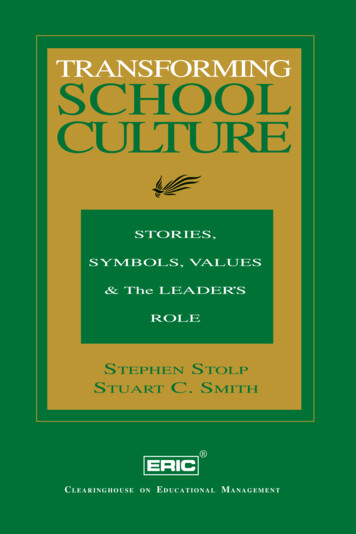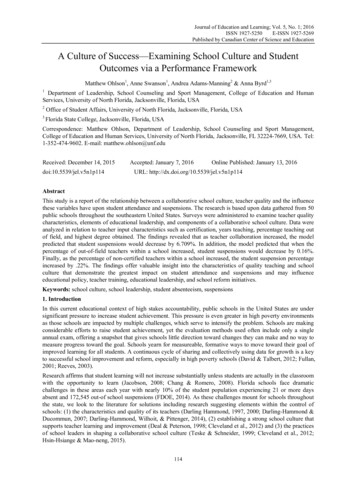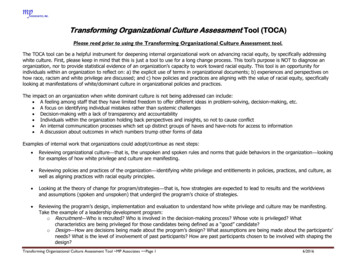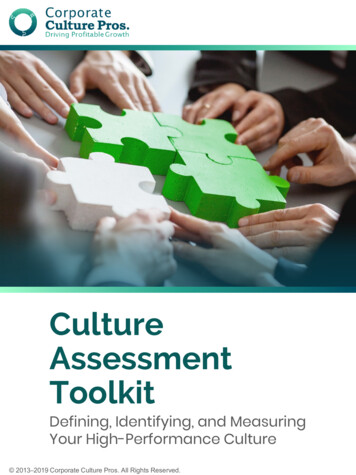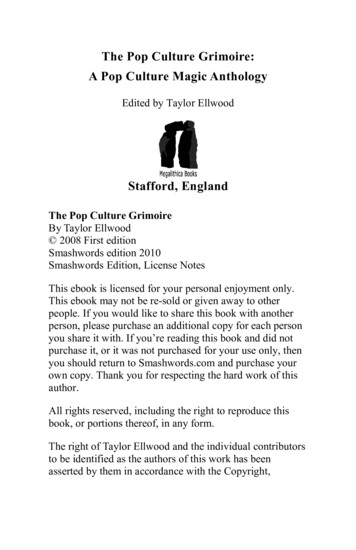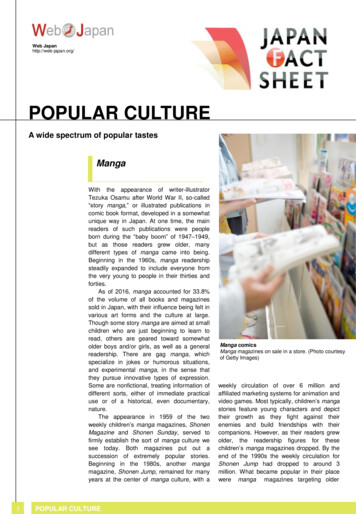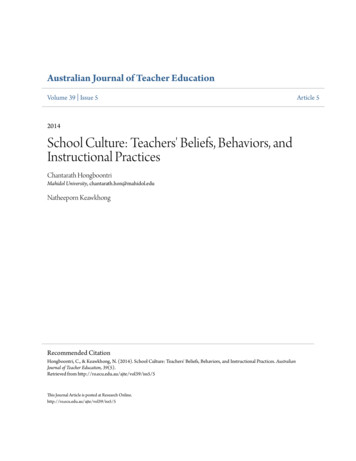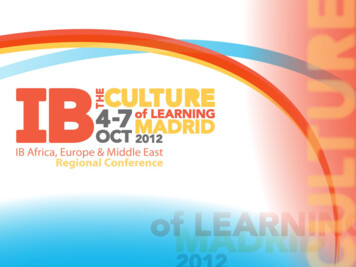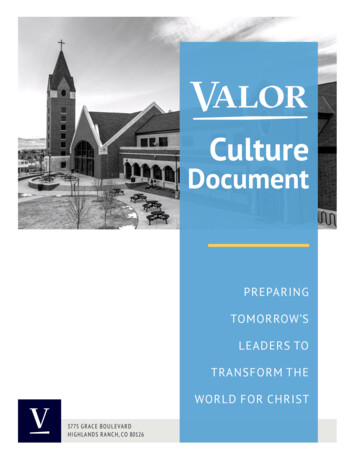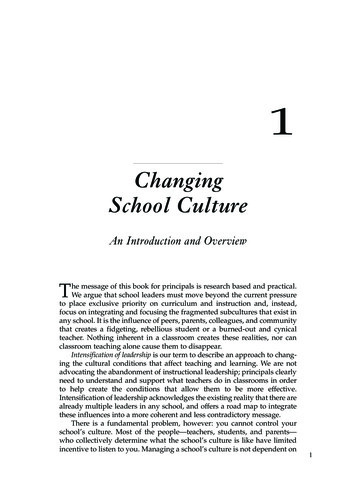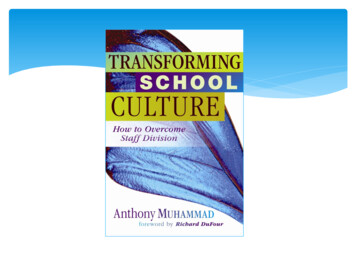
Transcription
Transforming School Culture:Understanding and OvercomingResistance to Necessary ChangeAnthony Muhammad
What Is a PLC?A professional learning community (PLC) is a group of“educators committed to working collaboratively inongoing processes of collective inquiry and actionresearch in order to achieve better results for thestudents they serve. Professional learning communitiesoperate under the assumption that the key toimproved learning for students is continuous jobembedded learning for educators.”—DuFour, Eaker, & Many (2006)
Three Big Ideas Ensuring that students learn Collaborative culture Focus on results
Two Forms of Change in a PLC Technical Cultural
Technical ChangeTechnical changes are changes inlearning tools and structure, such as: Creating collaborative timeDeveloping common assessmentsInterpreting dataUtilizing educational technologyAttending support classes
Common Misconceptions AboutTechnical Changes Changing the structure will lead to higherlevels of learning (“rearranging the seats onthe Titanic”). Technical changes make up for poorinstruction or unprofessionalism. Technical changes will fix kids or fix schoolsthat are broken (for example, dress codes ora longer school day).
Two Forms of Change in a PLC Technical Cultural
Two Underlying Assumptions in a PLC All children can learn. All children will learn because of what we do.All children DO learn, but they don’t alwayslearn what we want them to learn.
Predetermination Perceptual (everything is relative) Intrinsic (victims remain victims) InstitutionalWinners remain winners,and losers remain losers.
Cultural Wars(School Crusades) The Believers The Tweeners The Survivors The Fundamentalists
The BelieversObjective:Success for all students
The Believers Are very intrinsically motivated Are flexible with kids (academically andbehaviorally) Are mission driven, with a connection to schoolor community Are willing to confront negative talk andattitudes toward children Display varied levels of pedagogical skill Carry the banner of learning for all whetherstudents are learning or not
The TweenersObjective:To find a comfort zonewithin the organization
The Tweeners Are loosely coupled with the school mission Are enthusiastic about the idealistic nature of school, but havenot quite hit the tipping point Are not quite convinced that all children can learn, but notDarwinistic in their approach Follow instructions as given by administration (and therebyconsidered to be good teachers) Try to avoid school and district politicsOne bad or good experience can swing them tobe a Believer or a Fundamentalist (referred to asthe moment of truth).
The SurvivorsObjective:Survival
The Survivors Are affected by the overwhelming nature of the job orlife; it has caused clinical depression or burnout Have no political or organizational aspirations Create subcontracts with student to broker a ceasefireagreement Display little to no professional practice Are those who don’t belong in the profession (asagreed upon by all other members of the organization)Removal and treatment is the only possible remedy.
The FundamentalistsObjective:Maintain the status quo
Combat With the Three D’s Defame Disrupt Distract
The ClashFundamentalists(Need for stability andpredictability)School Improvement(Need to change tomeet organizationalgoals)
Pause to Think! Estimate (by percentage) the presence and power ofyour Believers, Tweeners, Survivors, andFundamentalists. How effective has your school or district been atmentoring and nurturing your Tweeners? What strategies might be used to strengthen yourTweeners’ attachment and commitment to yourschool or district?
Change Is Not Easy“Drop Your Tools” Research People persist when they are given no clearreason to change. People persist when they do not trust theperson who tells them to change. People persist when they view thealternative as more frightening. To change might mean admitting failure.—From Young Men and Fire (Maclean, 1993)
How Do We Respond? Level 1: Make a clear case forchange. Level 2: Develop relationships anddo not ostracize. Level 3: Increase capacity andconsider the context. Level 4: Monitor strongly.
Thank You!Joanne KeimOCM BOCES Network Team CoordinatorPBL 101 Trainerjkeim@ocmboces.org
KNOWNEED TO KNOW
HERE’S WHAT!SO WHAT?NOW WHAT?
Transforming School Culture: Understanding and Overcoming Resistance to Necessary Change Anthony Muhammad . A professional learning community (PLC) is a group of “educators committed to working collaborativ
